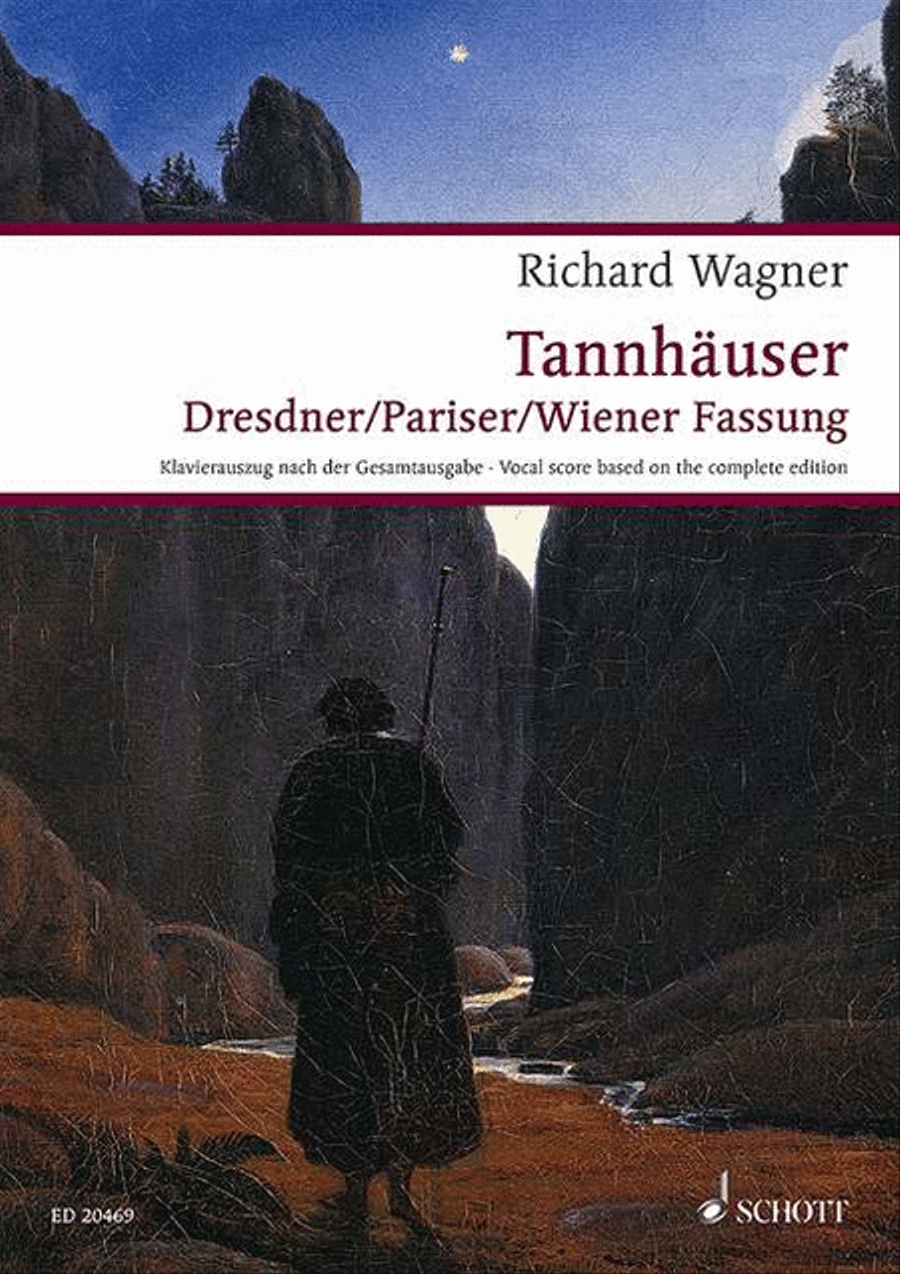Digital Download SKU: S9.Q25917 Vocal Score based on the Richard Wagner Complete Edition edited by Wolfgang M. Wagner. Composed by Richard Wagner. This edition: vocal/piano score. Erstveröffentlichung - Oper - Theater. Wagner Urtext Piano/Vocal Scores. Downloadable, Piano reduction. Schott Music - Digital #Q25917. Published by Schott Music - Digital (S9.Q25917). German • French.An important addition to Schott's newly published orchestral material is the first publication of piano scores for the ten major operas by Richard Wagner in all major versions. For the first time, we offer the stages and interested opera lovers piano scores as urtext editions that were designed according to uniform editorial criteria.•The score is aligned with the performance material of the Complete Edition. •All piano scores have study numbers and continuous measure numbers for rehearsal and study practice. •The editors are renowned musicologists from the circles of those working on the Richard Wagner Complete Edition who contribute detailed information on the respective editions to the critical prefaces.•The prefaces are printed in three languages (German, English, French). •The uniform appealing cover design with reproductions of paintings from the Wagner era emphasizes the serial character of the edition.TANNHÄUSERFor the Richard Wagner Complete Edition, the editors Egon Voss, Peter Jost and Reinhard Strohm as well as Cristina UrchueguÃa have researched and presented Tannhäuser's genesis and history of more than thirty years, which also took about thirty years of scientific work, on 2,959 pages in eight volumes. With the present piano score, the findings gathered therein shall now also to be made accessible for the musical practice. (Wolfgang M. Wagner, quoted from the foreword to the new Tannhäuser piano score)The piano score unites for the first time all four stages of the work (the score as of 1845, the score as of 1860, the Paris version as of 1861/62 with the complete French text of this version, and the Vienna version as of 1875) in a single excerpt for rehearsal and study practice, thus allowing the comparison of the versions, without sacrificing practicability.All variants are printed one after the other in the chronological sequence of the action on the stage, so that each of them can be explored in their context of action by simply turning over the pages. Only two variants rejected before the Paris premiere were printed separately in the appendix. A fascinating insight into Richard Wagner's thinking in terms of stage practice and into his very precise ideas of tonal balance, scenic details and role-conception are made possible by the quotations printed in key passages from his work On the Performance of Tannhäuser, published in 1852.For example, soon after the world premiere, Wagner suggested the deletion of bars in the orchestral part in the 4th scene of Act I, reasoning that […] due to the tremendous woodenness and self-consciousness of our usual supernumeraries, the impression of overwhelming liveliness, which was intended by me and which was to imply a heightening of the mood led up to by the liveliest manifestations of life, was not achieved. (piano reduction, p. 221)In the big ensemble scene at the end of Act II, Wagner puts in a comment at a certain passage, referring to the conductor and his great responsibility for tonal balance:The exclamations 'Ach, erbarm' dich mein!' require such a piercing emphasis that he [the performer of Tannhauser] as a mere, well-trained singer is not enough; it is but the highest dramatic art that has to provide him the energy of pain and desperation for an expression that must seem to break forth from the most gruesome depths of an awfully woeful heart, like a cry for salvation. The conductor has to ensure that the implied success is made possible for the principal singer by the most discrete accompaniment of the other singers as well as of the orchestra. (piano reduction, p. 367)3 (3. auch Picc.) · 2 · 2 · Bassklar. [nicht in Pariser F.] · 2 - 2 Ventilhr. · 2 Waldhr. · 3 Ventiltrp. · 3 · 1 [Pariser F.: Ophicléïde] - P. S. (Trgl. · Beck. · Tamb. · gr. Tr. · Tamt. [Pariser F.] · Kast. [Pariser/Wiener F.) (2-3 Spieler) - Str. Auf dem Theater: 2 Picc. [P/W: 1] · 4 Fl. [P/W: 2] · 4 Ob. [P/W: 2] · Engl. Hr. · 6 Klar. [P/W: 3] · 4 Fg. [P: 2, W: 0] - 12 Wald-Hr. · 12 Trp. [P: 9] · 4 Pos. [P/W: 4 Hr.] - Trgl. · Beck. · Tamb. · Kast. [nur in P] - Hfe. [in P/W].
